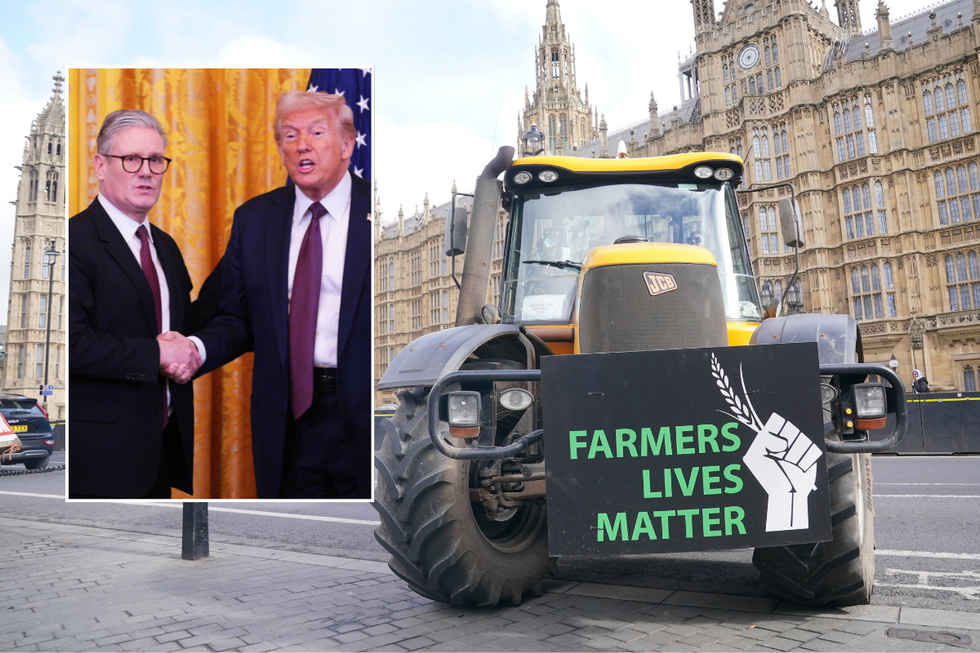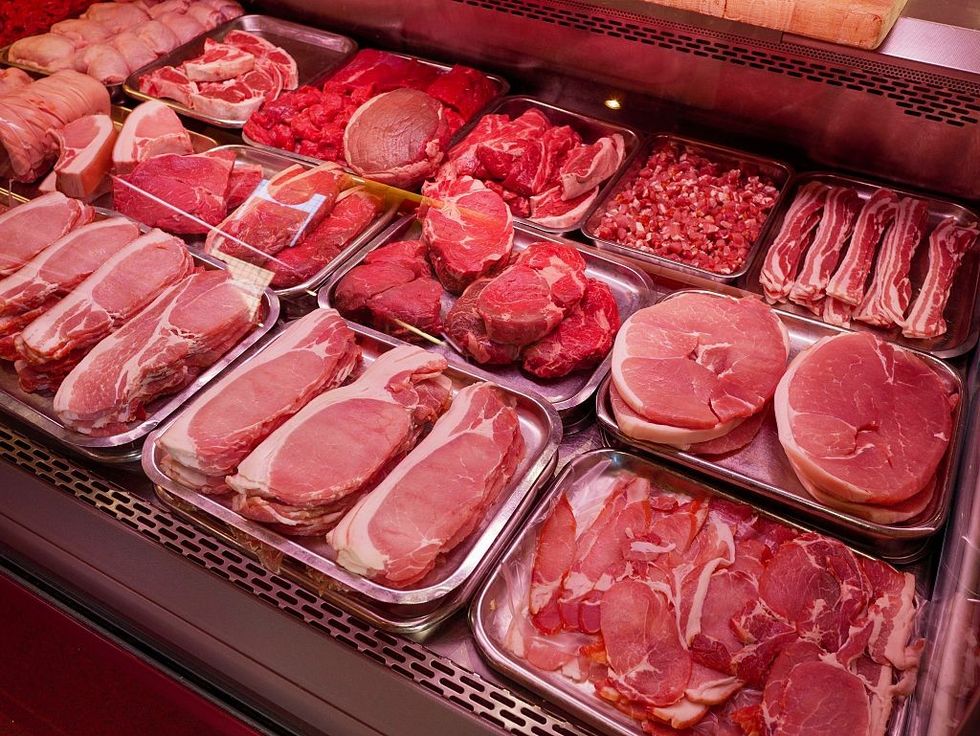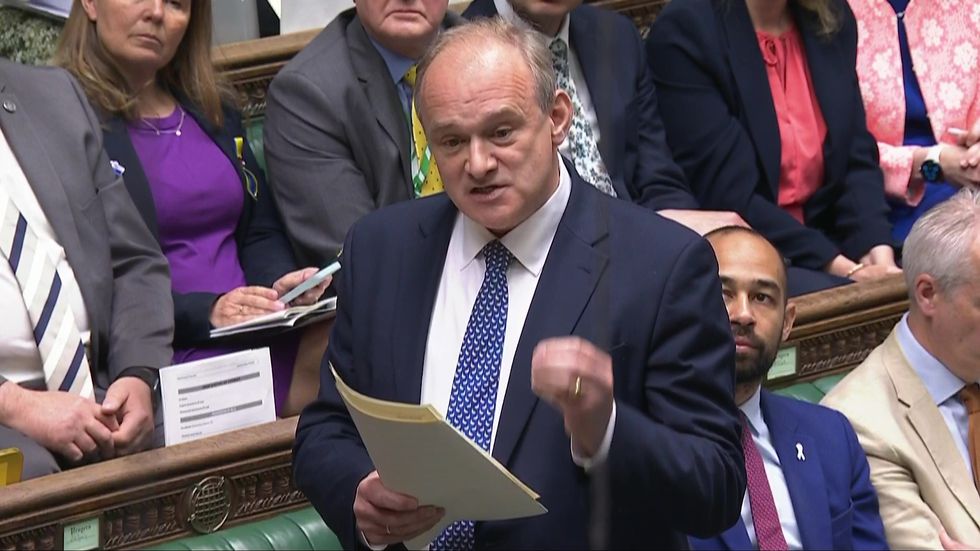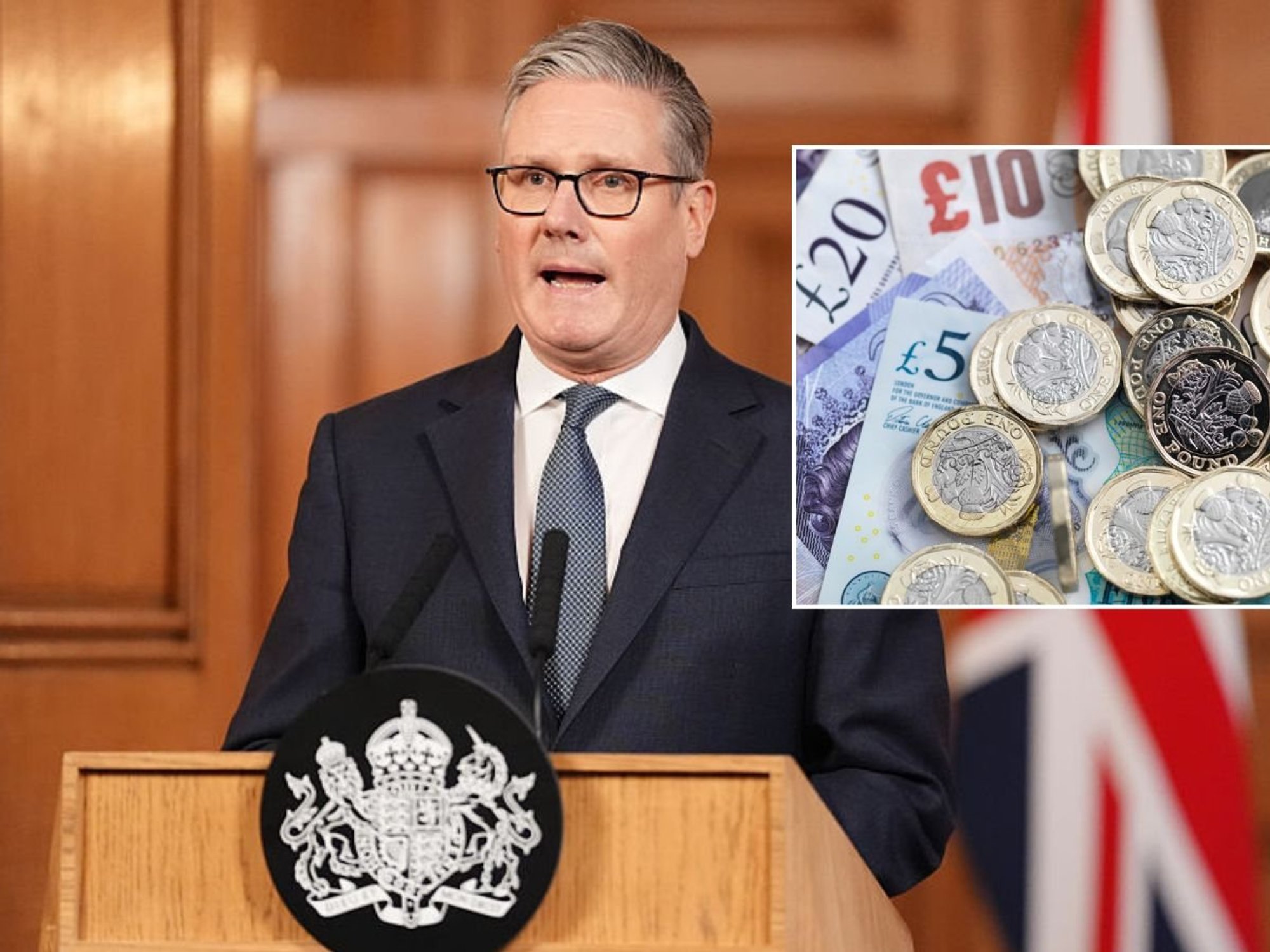'Destroying our own industry!' Keir Starmer 'disastrous' beef deal with President Trump BLASTED by farmers

Farmer blasts Keir Starmer for 'opening the floodgates' with US-UK deal
|GB News

Farmers have said the highest standards of food hygiene needed to be applied
Don't Miss
Most Read
Latest
British farming experts have slammed yesterday's trade deal between the UK and the US - dubbing it "disastrous."
The agreement, announced yesterday, includes reciprocal market access for beef, with UK farmers given a tariff-free quota for 13,000 tonnes of exports to the US.
While some farming leaders have welcomed the Government's commitment to maintaining high food standards, others have expressed serious concerns about the impact on British producers.
Kent Fairness for Farmers founder Jeff Gibson has strongly criticised the deal.

Farmers have reacted to the deal
|Getty/PA
Gibson told GB News: "It pretty much spells out the end of British beef production in this country."
He expressed concerns about lower US food standards, citing "routine antibiotics in food" and "hormone beef in America and Canada that was banned 50 years ago in this country."
He argued British farmers cannot compete with cheaper imports while maintaining higher standard, adding: "We're destroying our own industry by allowing substandard products to be sold next to our own.
"The public are always going to want cheap food, but without the understanding of why that food is so much cheaper."
Meanwhile, beef and arable farmer in Lincolnshire Heather Oldfield told GB News that she was not surprised by the announcement, adding: "My worry is how British farmers will react to this with everything else that has happened since this Government has come in.
"I think the devil will be in the detail but when you open up any market to something new there is that potential for market dilution and dilution of standards."
LATEST DEVELOPMENTS
- Donald Trump announces 'full and comprehensive' UK-US trade deal as he teases 'more to follow' - 'It's a great honour'
- Labour facing CIVIL WAR over Rachel Reeves's farm tax raids as dozens of rural MPs head to Whitehall
- Resident erupts in fury as 64 acres of 'oasis' fertile farmland to be covered by solar panels - 'Incredulous'

The deal about meat standards has been heavily scrutinised
|Getty
North Wales beef farmer Paul Williams offered a more optimistic view, telling GB News: "I think if a trade deal had to be done, then this is the way to do it."
He emphasised the importance of maintaining food standards on imported beef.
"We know from visits the NFU did to the United States last year that actually American people prefer British Beef, it is of a higher quality," Williams said.
He sees potential export opportunities, adding: "There are no worries about British food market being diluted because the majority of American beef is hormone fed which falls outside parameters of what they could import into the UK."
NFU president Tom Bradshaw acknowledged the Government's efforts in addressing farmer concerns.
"We appreciate the government's efforts in listening to our concerns, particularly around maintaining high standards, protecting sensitive agricultural sectors, and securing reciprocal access for beef," he said.
However, Bradshaw expressed worry about the inclusion of zero-tariff bioethanol in the deal. He noted this raises "concerns for British arable farmers" and warned that agriculture "could not continue to shoulder the heavy burden of the removal of tariffs for other industries in the economy."
The Association of Independent Meat Suppliers took a more positive stance, describing the deal as providing "unprecedented market access for British farmers."

Liberal Democrat leader Sir Ed Davey said he had "grave concerns" about the deal
|Parliament.tv via PA
Liberal Democrat leader Ed Davey expressed "grave concerns" about the deal's implications for British farmers.
The National Pig Association called it "an important first step in restarting trading relations with the US", noting the American market is worth £24m on average.
Both organisations are awaiting further details on how other meats will be treated under the agreement.The deal has been described as both an opportunity and a threat to the UK's beef industry.
Under the agreement, the UK government has maintained its pledge to keep hormone-treated beef and chlorine-washed chicken out of the UK market.










